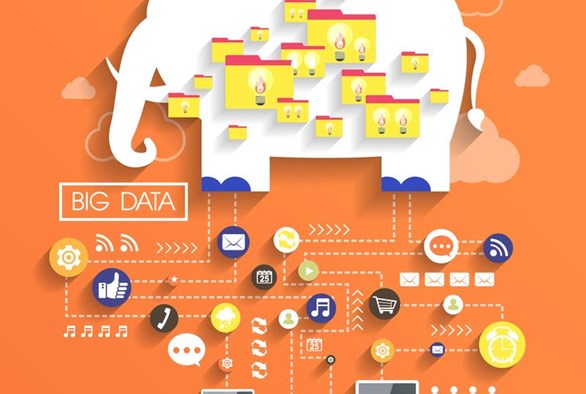Ever wondered how LinkedIn figures out whom to recommend in your People You May Know section? Like what are the chances! You probably met this person long back and now a bleak memory remains. If you think of it, it’s an intriguing question, but a data scientist knows better. Curious much? The answer is Hadoop!

What is Hadoop?
Hadoop is a Java based programming framework. It is open source and hence popular. This framework has gained a lot attention because it is useful in processing large data (like big data large!) in a distributed computing ecosystem. Now what makes Hadoop relevant to our existing time are two core reasons. For one it is a solution for big data problems and two distributed computing systems assist in computations that happen simultaneously on multiple devices meaning processing scale of terabytes of data! Thus solving big data problems using Hadoop helps in reducing total time taken to arrive at outcome.
How Hadoop helps solving problem?
Big Data problems are everywhere in this digital world. There is too much data to make sense of and consume. Companies big and small are now investing to solve problems in Hadoop. Data analysis to help business operations arrive at decisions or support business process are common scenarios of hadoop.
Pattern recognition: Since Hadoop can manage structured, semi-structured and unstructured data, pattern recognition is a common big data problem that Hadoop can successfully tackle. Solving business problems with Hadoop cluster that breaks down large data into a smaller cluster for analyzing and processing is the key to resolve this concern. A common use case for pattern recognition is real time analytics. Hadoop can continuously capture, store and process data from sensors and connected devices. With this live data, Hadoop can proactively assist in churning possible safety risks and help in damage control.
Index Building: Indexing large amount of data is another big data challenge. Data creation has become such a norm that it is nearly impossible to cap creation of data. Creating indexes on those millions of records can be accomplished with Hadoop. It essentially simplifies search queries on high volume data. A common use case of this would be an app that has to announce correct scores for leading players on their chart!
Recommendation Engines: Recommendation engines have picked up and how on almost every online platform. Be it e-commerce website or content based sites like Youtube. With Hadoop creating relevant recommendations and altering recommendations within fraction of seconds is possible. Hadoop and predictive analysis basically helps in filtering vast information online to narrow consumable choices that increase user engagement and customer conversions.
Python for Hadoop?
While Hadoop and Apache Hadoop ecosystem is mostly written in Java, python is also the programming language that helps in the quest of distributed data storage and processing. To learn python and use it for big data problems is an equally rewarding idea. Python programming can also help solving big data challenges of indexing, recommendations and patterns.
With so much data being created per second, these big data challenges and Hadoop are here to stay. The question then really comes down to is, which side of the problem are you on? To learn & excel, enroll now with the best online big data courses in India at acadgild.com
